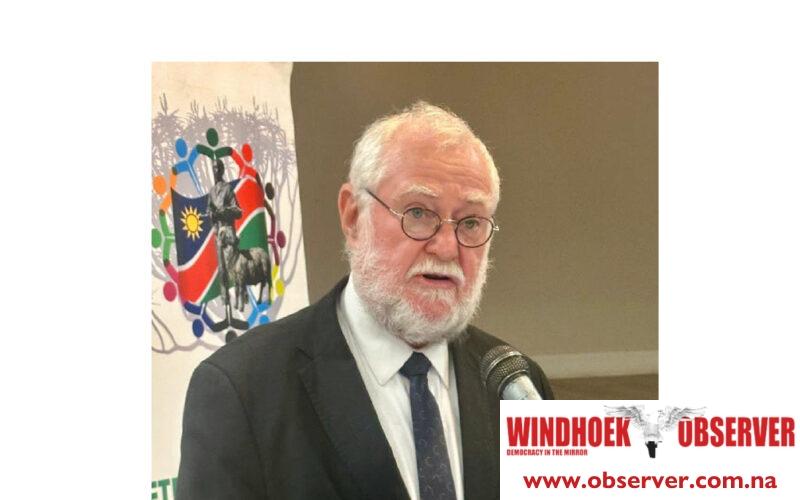Niël Terblanché
Calle Schlettwein, the minister of agriculture, water and land reform urged the Trust Fund Committee of the Climate Investment Fund (CIF) to approve and support the implementation of the Zambezi Region Nature, People, and Climate (NPC) Investment Plan.
The plan, aimed at tackling climate change, ecosystem degradation, and human activity impacts, was presented at the CIF Strategic Climate Fund (SCF) Trust Fund Committee meeting in Washington, USA last week.
Schlettwein, who also serves as Chair of the Zambezi Watercourse Commission (ZAMCOM) Council of Ministers, stressed the plan’s significance, calling it a shared vision of sustainable development that aligns with regional and global frameworks.
“The well-being of our people is inextricably linked to the health of our environment,” he said.
He pointed out that the Investment Plan is in harmony with the Revised SADC Protocol on Shared Watercourses, the African Union’s Agenda 2063, and the Sustainable Development Goals (SDGs), reinforcing the collective commitment to climate resilience and sustainable growth.
The Zambezi Watercourse Commission (ZAMCOM) is an intergovernmental body uniting eight riparian states—Angola, Botswana, Malawi, Mozambique, Namibia, Tanzania, Zambia, and Zimbabwe—that share the Zambezi River Basin.
Established through the 2004 ZAMCOM Agreement, the commission promotes equitable and sustainable management of the basin’s water resources.
The Zambezi River, Africa’s fourth-largest river system, is vital to approximately 51 million people, providing potable water, land, forest products, fisheries, hydropower, and opportunities for spiritual and recreational activities.
However, the river faces mounting threats from climate variability, unsustainable land use, and environmental degradation.
Schlettwein warned of worsening climate-induced risks, citing the alarmingly low water levels of the Kariba Dam, the largest artificial lake in the basin.
“Before the current runoff season began in November 2024, the dam was at only six percent capacity, the lowest since its construction in 1959,” he said.
He added that the broader consequences of such climate challenges, including reduced power generation, declining food production, and economic instability would be detrimental.
The Zambezi Region NPC Investment Plan proposes six key nature-based solutions to address these challenges, requiring a total of US$703.39 million over a five-year period.
The CIF has pledged an initial US$58 million as seed funding to stimulate further investments from international partners, multilateral development banks, and the private sector.
Schlettwein stressed the importance of additional financial support to address vast high-risk areas across the Zambezi River Basin.
“We call upon the Climate Investment Funds (CIF) Trust Fund Committee to approve this Investment Plan and support its implementation,” he said.
While reiterating the plan’s transformative potential, Schlettwein declared that it could serve as a model for integrated climate action in other transboundary water systems.
“The successful realisation of the Zambezi Region Investment Plan will not only safeguard our natural capital but also reinforce the resilience of our communities,” he said.
He also expressed gratitude for the financial and technical backing received from key partners, including the African Development Bank, the World Bank, and the International Finance Corporation and acknowledged strategic collaborators such as the United Nations Convention to Combat Desertification and the Commonwealth Secretariat for their technical support in shaping the Investment Plan.
Schlettwein reiterated that the ZAMCOM Council of Ministers is dedicated to regional cooperation and climate resilience efforts.
“We stand ready to work with development partners, the private sector, and local communities to realise the ambitious goals of the Zambezi Region NPC Investment Plan,” he said.




